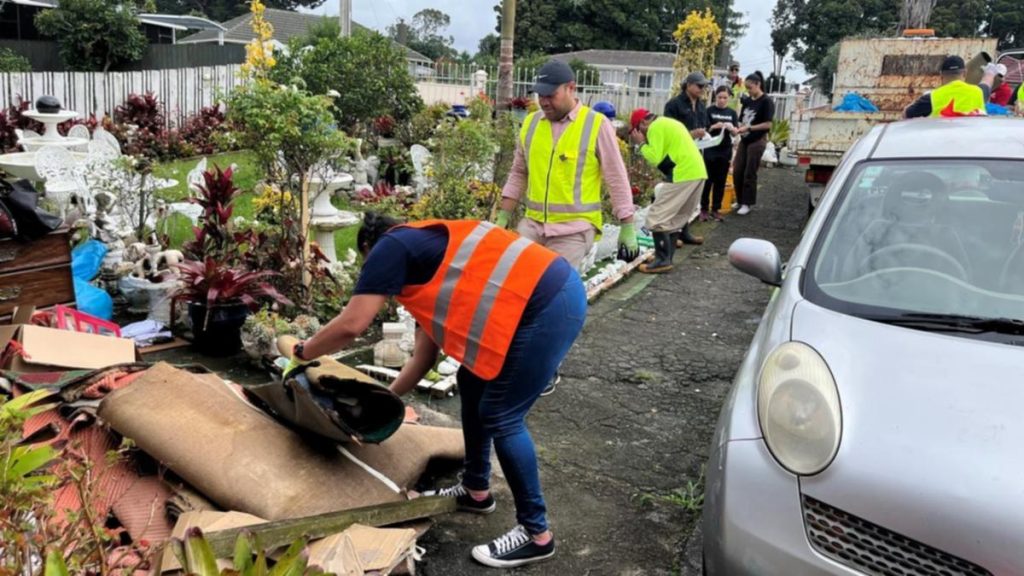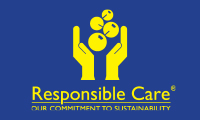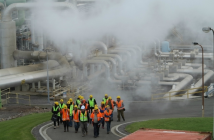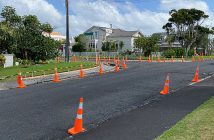The Government announced a new visa to facilitate the availability of specialist migrant workers to help in the recovery efforts following Cyclone Gabrielle and other recent weather events in the North Island

The Recovery Visa (a Specific Purpose Work Visa), will allow employers to sponsor migrants to come to New Zealand for a specific event or purpose, including working on an emergency response.
The full picture of labour demand is still emerging but we know that in the short term we’re going to need specialists from overseas such as engineers, technicians and insurance assessors to support our New Zealand experts on the ground.
INZ will aim to process applications for the Recovery Visa within a week and many of them will be decided even quicker.
The initial visa will last up to 6 months. The $700 fee will be refunded for successful applicants.
Similar pathways have been used for the responses to the Christchurch and Kaikoura earthquakes and insurance assessors have already been applying for Specific Purpose work visas after the first Auckland flooding event.
Employers wanting to recruit migrant workers for longer term roles are encouraged to use the existing Accredited Employer Work Visa. Changes are being considered to this visa to support faster processing for identified roles that will support the recovery and rebuild. These roles will be exempt from the labour market test.
Migrants already in New Zealand who need to change their role and location will be able to do so without breaching their visa conditions for up to 2 months – provided they stay with their same employer.
Migrants wanting to move to another employer will still need to apply for a Job Change or Variation of Conditions.
Civil Contractors New Zealand Chief Executive Alan Pollard welcomes the changes, saying the new category was flexible and streamlined enough for the industry to recruit workers from overseas to work on the cyclone cleanup response, without the significant barriers that have prevented the industry from overcoming its critical shortage of workers.
“This visa category will enable the civil construction industry to get the people it needs, without the burdens imposed by excessive cost, delay and red tape. It’s what our members need to be able to address the challenges posed by the cyclone.”
Pollard says while six months validity after issue was not a long time for the visa to be granted, he hoped the visa would be streamlined to connect in with other opportunities for migrants to support the country’s massive recovery build.
He says the country’s shortage of civil construction workers had been well-documented as the industry’s number one challenge for several years, and despite the industry’s efforts to create good training and workforce intake programmes, the inability to bring in migrant workers where needed had significantly impacted projects and maintenance efforts.
While businesses had put a lot of energy into identifying talent and developing people within New Zealand, they had at the same time been severely restricted by closed borders, a small pool of prospective workers and few infrastructure construction training opportunities, he says.
“It’s clear from the scale of this disaster that we have a lot of work to do. Civil construction companies are working hard to clean up debris and silt, as well as repair roads, public spaces and private properties. But they also need to look after their people, who can only work in ‘crisis mode’ for so long. New overseas workers will help spread the load.”
He says good mental health support was also needed to prevent fatigue and burnout amongst those working to repair the damage wreaked by the cyclone, and encouraged companies to explore new crisis resources produced by MATES in Construction NZ.
The next step would be a co-ordinated international campaign to recruit top international talent that leveraged NZ’s global status and international networks.
He also called on Kiwis to take up the challenge and contribute to cyclone response and recovery ‘however they can’, with huge opportunity for workers in the cleanup and recovery, in addition to the construction and maintenance of NZ’s transport and water networks.
Roles covered by this visa
The Recovery Visa (a Specific Purpose Work Visa) allows employers to sponsor experts such as engineers, technicians, and insurance assessors to come to New Zealand.
The visa is for migrant workers coming to New Zealand for a short time (up to 6 months) to do a job that supports the North Island recovery from extreme weather events in January and February 2023.
This support can include:
- providing emergency response
- immediate clean-up
- assessing risk or loss
- infrastructure, building and housing stabilisation and/or repair (including planning functions)
- work that directly supports the recovery (e.g. producing relevant materials for road rebuild, transport drivers etc).
Employers must confirm that the role supports the North Island recovery from extreme weather events by completing a Recovery Visa Employer Supplementary Form (INZ 1377). Migrants must include the completed form with their application.
This visa is not available to industries providing indirect support (e.g. businesses in the affected areas facing an increased demand for services) or to backfill vacancies of people leaving roles to work on the recovery.
These employers will be able to access labour through other visas such as the Accredited Employer Work Visa (AEWV). Changes are being considered to the AEWV to support faster processing for identified roles that will support the recovery and rebuild. These roles will be exempt from the labour market test.
The Recovery Visa is not limited to roles in the North Island only, recognising that some direct support industries will be South Island-based.
Applying for the Recovery Visa
- Employer finds migrant workers who meet the requirements in assisting with the recovery.
- Employer downloads and completes the Recovery Visa – Employer Supplementary Form (INZ 1377) and provides it to the migrant.
- Migrant worker completes a Specific Purpose Work visa application, uploads/attaches the Recovery Visa – Employer Supplementary Form (INZ 1377) and specifies length of stay in New Zealand as 6 months or less.
- Immigration New Zealand processes the application and provides the applicant with a decision.
Recovery Visa – Employer Supplementary Form (INZ 1377)PDF 394KB
INZ aims to process applications for the Recovery Visa within a week or less.
The NZD $700 fee will be refunded automatically for successful applicants. Refunds are expected to take 15 to 25 days to process, depending on demand for the new visa.




